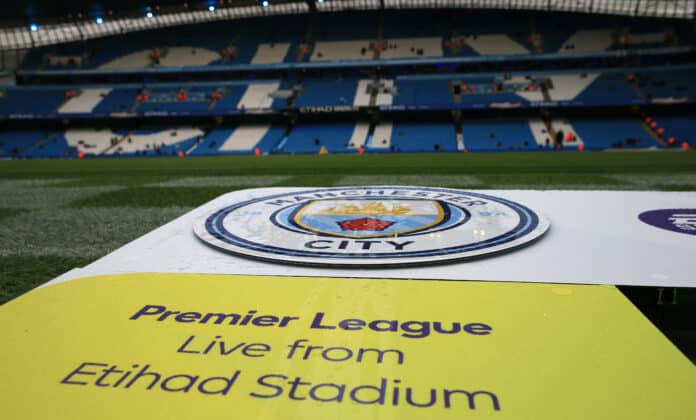Manchester City and Their Legal Battle with the Premier League: What It Means for Football
The Current State of Affairs
Manchester City are embroiled in a new legal dispute with the Premier League, further intensifying their ongoing legal battles. Already facing 115 charges related to breaching the Premier League’s profit and sustainability rules (PSR), City have now initiated a separate legal case against the league’s associated party transaction (APT) regulations. This case is set to begin on June 10 and could potentially reshape the financial landscape of the division.
The upcoming Premier League AGM on Thursday will likely see this issue as a central topic of discussion among club representatives. But what exactly are these APT rules, and what could their implications be?
Understanding the APT Rules
The APT rules were significantly tightened following the Saudi-led takeover of Newcastle United, which was approved in October 2021. Rival clubs feared that Newcastle’s new owners, the Saudi Arabia Public Investment Fund (PIF), could exploit their vast array of companies to secure inflated sponsorship deals, thus circumventing the PSR rules.
Initially, clubs voted for a temporary suspension but eventually agreed on a framework that required all associated-party transactions to pass a fair market value test. This test ensures that any deal is financially justifiable to all parties based on the prevailing market rate. For instance, Newcastle’s sponsorship deals with PIF-linked entities like Sela and Noon were subjected to this test.
City’s Opposition and Legal Challenge
Manchester City have consistently opposed or abstained from voting on these regulations during Premier League meetings. This stance is largely due to City’s extensive sponsorship network, which is closely tied to figures on the City Football Group (CFG) board. For example, Etihad, the state airline of the United Arab Emirates and City’s title sponsor, has strong links to the UAE government, despite claims of separation by City’s owners, the Abu Dhabi United Group (ADUG).
In 2022, City recorded Premier League record revenues of £712.8 million, with nearly half—£341.4 million—coming from commercial income. This commercial success, bolstered by significant sponsorship deals, has made City a financial powerhouse in English football.
In February, new APT rules were agreed upon. At the same meeting, Premier League chief executive Richard Masters informed clubs that an unnamed club, later identified as City, was threatening legal action, claiming the new regulations breached competition law. City’s legal case, which will be heard in private, argues that the rules were rushed and applied discriminatorily. They seek a more equitable form of regulation.
The Potential Outcomes
If City Win
Should Manchester City emerge victorious, clubs like City and Newcastle could immediately strike several lucrative deals, entering the summer transfer market with significant financial backing. This outcome could lead to a scramble among other clubs to secure related-party sponsorship deals of their own.
A victory for City could also challenge the overarching PSR regulations, potentially reversing measures aimed at ensuring clubs operate within their means. This shift could increase financial disparities within the league and reduce the competitiveness that has become a hallmark of the Premier League.
If City Lose
If City lose the case, the APT rules will remain as they are, though City can still attempt to change the regulations through a Premier League vote. This defeat, however, would not mark the end of City’s legal battles. The club’s ongoing disputes with the Premier League, including the 115 charges related to past financial breaches, could lead to a deepening rift between City and the league.
Some legal experts suggest that City’s ongoing legal battles might be a strategic move to revive the European Super League (ESL) concept. If City’s relationships with the Premier League deteriorate further, they might consider rejoining the ESL.
The Broader Implications
Impact on the Premier League
The Premier League’s legal capabilities are already stretched, and this case will only add to their workload. Politically, the league is in a difficult position. Even if they win this case, the shadow of City’s 115 charges still looms large. Rival clubs insist on appropriate punishment for City, but a verdict on these charges is not expected until at least spring 2025.
If the Premier League loses, clubs with state ownership links will be financially empowered, raising questions about the division’s credibility and fairness. This could lead to a significant shift in the balance of power within the league.
UEFA and European Implications
While UEFA has its own fair-market value test, City’s legal challenge does not address these laws. However, a victory for City in this case could have ripple effects across European football. At least one European superclub is closely monitoring the proceedings, concerned about the potential implications of City’s financial growth.
Conclusion
Manchester City’s legal battle with the Premier League over the APT rules is a significant development with far-reaching implications. Whether City win or lose, the outcome will impact not only their financial operations but also the broader financial and regulatory landscape of the Premier League and European football. As the case unfolds, it will be closely watched by clubs, regulators, and fans alike, shaping the future of football’s financial governance.


